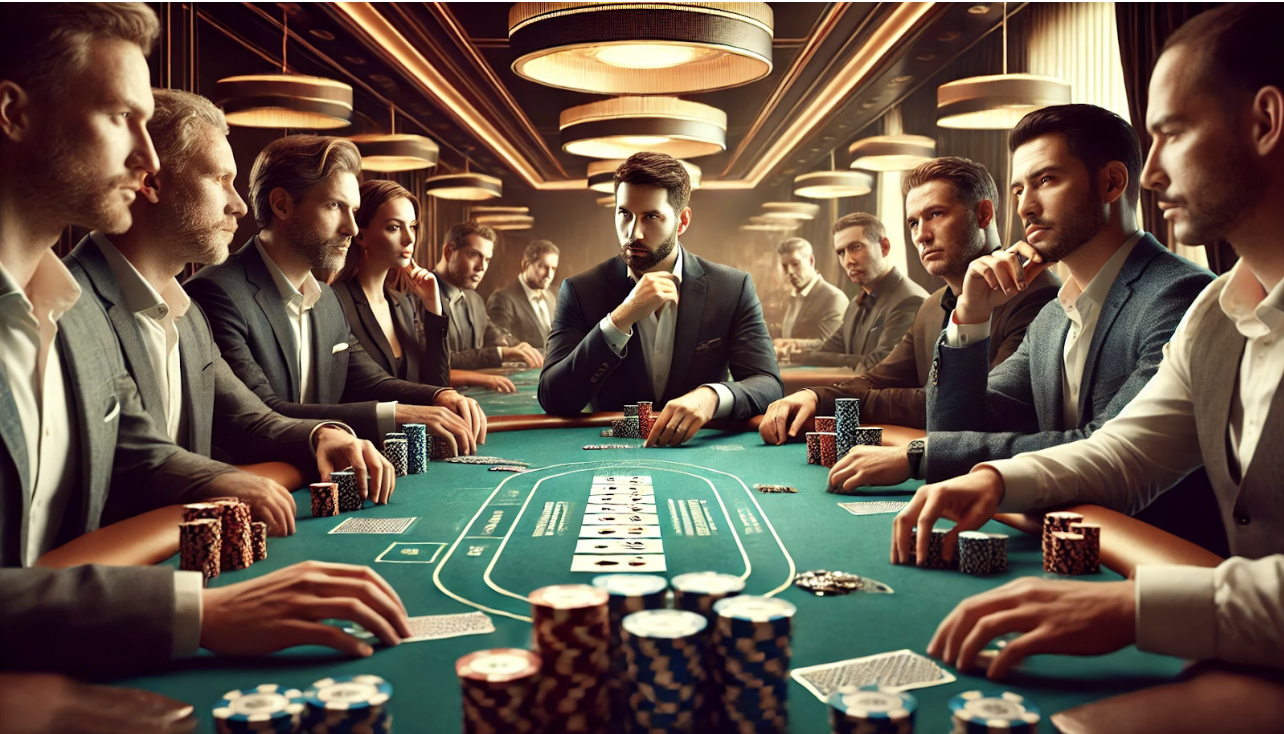Game Theory in Everyday Life: What Poker, Stock Trading, and Casinos Have in Common
Game theory, a mathematical framework for decision-making, applies far beyond academia. It influences numerous aspects of daily life, from negotiations to financial investments. This discipline analyses strategies where players must anticipate opponents’ moves to maximise their own success. Among the most prominent real-world applications are poker, stock trading, and casinos, where strategic thinking plays a vital role in outcomes. TikiTaka casino exemplifies how game theory principles are embedded in gambling strategies.

The Fundamentals of Game Theory
Game theory was formally developed by John von Neumann and Oskar Morgenstern in the 1940s. It examines how rational players make strategic choices under conditions of uncertainty. In zero-sum games, one player’s gain equals another’s loss, a concept that directly applies to competitive environments like poker and stock trading. The key components of game theory include:
- Players – individuals or entities making decisions.
- Strategies – different approaches available to players.
- Payoffs – the rewards or consequences of specific choices.
- Information – knowledge of other players’ actions and tendencies.
- Equilibrium – the point at which players optimise their strategies, often seen in the Nash equilibrium.
Understanding these principles helps navigate environments where competitors react to each other’s decisions.
Poker: A Game of Skill and Strategy
Poker is one of the best-known applications of game theory. Unlike purely chance-based gambling, poker requires players to analyse probabilities, opponent behaviour, and strategic deception. Professionals rely on techniques such as:
Bluffing and Mixed Strategies
Bluffing is a core component of poker strategy, rooted in game theory. Players strategically misrepresent their hands to manipulate opponents’ decisions. However, excessive bluffing can lead to predictability, allowing opponents to counteract. The solution is a mixed strategy, where players randomly choose between bluffing and playing straightforwardly, making it difficult for adversaries to anticipate moves.
The Nash Equilibrium in Poker
The Nash equilibrium occurs when no player can improve their position by changing their strategy, assuming others remain unchanged. In poker, this means balancing aggression and caution to prevent opponents from exploiting predictable patterns. Top players like Daniel Negreanu and Phil Ivey incorporate equilibrium-based tactics to maintain an edge over competitors.

Stock Trading: Strategic Decision-Making in Financial Markets
Stock markets operate as complex strategic environments where investors must anticipate market reactions, government policies, and global events. Game theory influences trading in several ways:
Market Psychology and the Prisoner’s Dilemma
A classic game theory scenario, the Prisoner’s Dilemma, applies to stock markets. Investors face choices between cooperation and self-interest. If all market participants invest conservatively, stability ensues. However, if some attempt to outmanoeuvre others for short-term gains, the system becomes volatile, leading to market crashes or speculative bubbles.
High-Frequency Trading and Game Theory
High-frequency trading (HFT) employs algorithms that react to market signals within milliseconds. These algorithms use game-theoretic models to predict competitor behaviour and execute trades at optimal moments. Companies like Citadel and Renaissance Technologies use strategic algorithms to maximise profits while countering competitors’ strategies.
Casinos: The Business of Probability and Strategic Play
Casinos thrive on probability and expected value, ensuring the house maintains a statistical advantage. However, strategic play, informed by game theory, can enhance a player’s odds in certain games.
Optimal Play in Blackjack
Unlike games of pure luck, blackjack offers opportunities for strategy. Basic strategy charts guide players on the most statistically advantageous moves based on their hand and the dealer’s visible card. Card counting, although discouraged by casinos, is a more advanced technique rooted in game theory. It helps players track high-value cards remaining in the deck, allowing them to adjust bets accordingly.
The Role of Game Theory in Casino Management
Casinos also apply game theory to player psychology. By adjusting payout structures, promotional offers, and game variations, they influence player behaviour. For instance, slot machines use reinforcement schedules, a psychological principle derived from game theory, to keep players engaged through intermittent rewards.
Commonalities Across Poker, Stock Trading, and Casinos
Despite differences, these three areas share several strategic elements. Each involves analysing risks, making calculated decisions, and responding dynamically to opponents’ actions. Additionally, success in these fields often depends on a deep understanding of human psychology and probability theory.
- Risk and Reward Calculations – Success in poker, trading, and gambling depends on understanding probabilities and expected values.
- Opponent Analysis – Whether reading poker players, analysing traders’ moves, or predicting casino strategies, anticipating others’ actions is crucial.
- Bluffing and Misdirection – Strategic deception is prevalent in poker, market speculation, and even casino promotions.
- Mathematical Modelling – Professionals use algorithms and probability models to guide decision-making.
- Psychological Manipulation – Casinos design games to maximise engagement, just as stock traders exploit investor psychology.

How to Apply Game Theory in Everyday Decision-Making
Beyond gambling and investing, game theory principles enhance strategic thinking in everyday life. It helps individuals make optimal choices by considering potential outcomes and reactions from others. Consider these practical applications:
- Negotiations – Understanding your opponent’s incentives helps secure better deals.
- Career Decisions – Weighing risk versus stability mirrors investment strategies.
- Social Interactions – Predicting others’ responses fosters better communication.
- Business Strategies – Companies use game theory to outmanoeuvre competitors.
Final Thoughts
Game theory is a powerful tool that shapes poker, stock trading, and casino strategies. By understanding its principles, individuals can make more informed decisions, whether at the poker table, in financial markets, or even in daily life. Mastering these concepts transforms chance-based risks into calculated opportunities, offering an edge in competitive environments.
